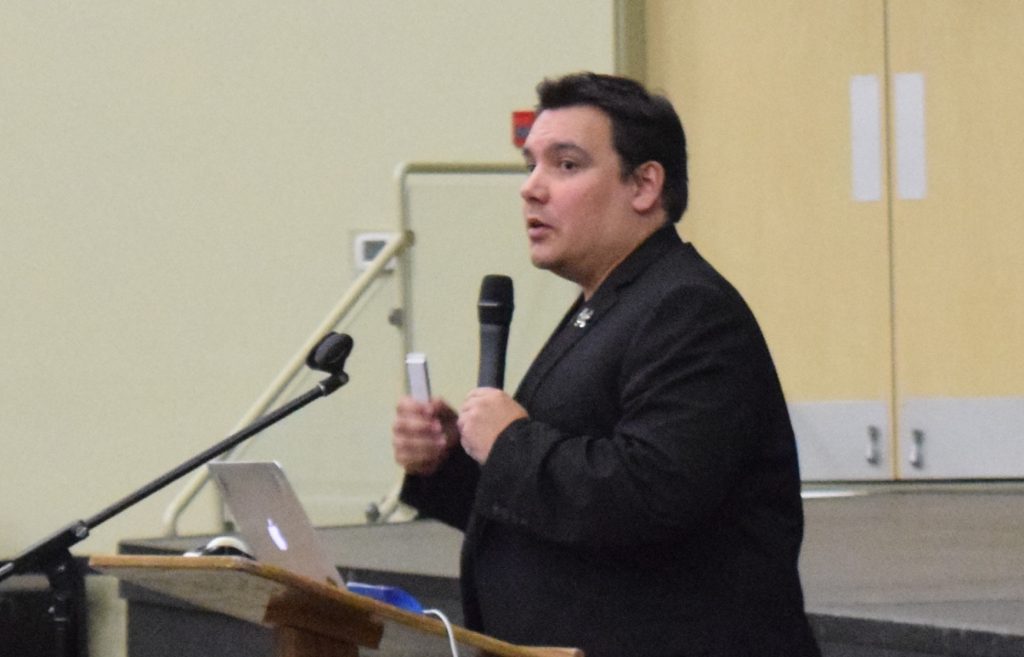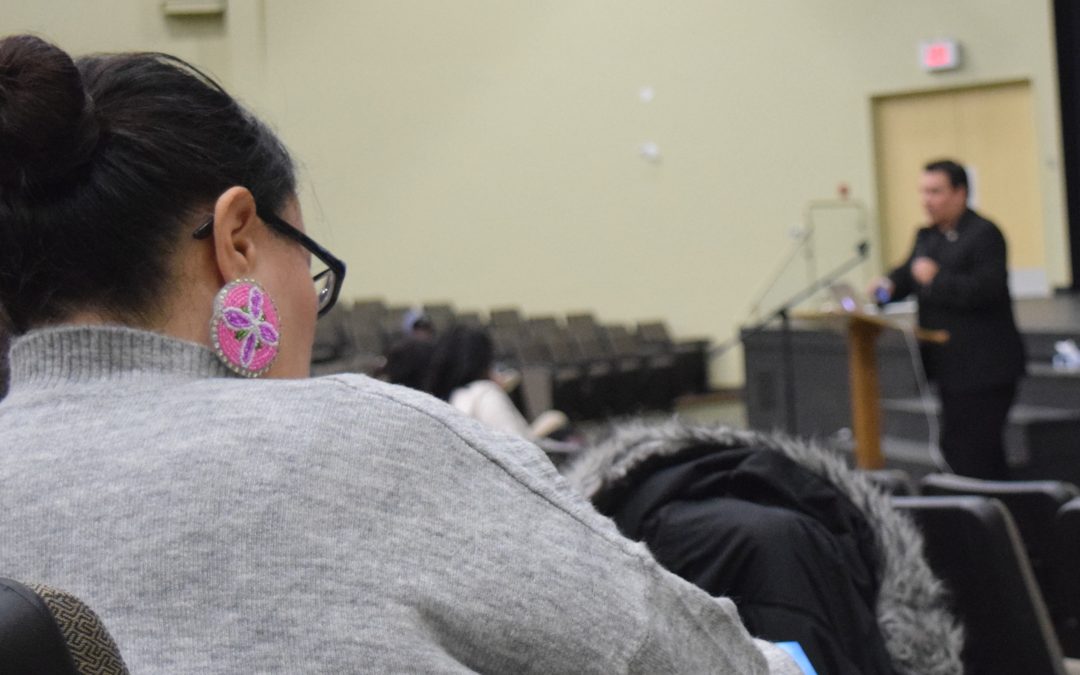“We are not in an era of reconciliation, but there is potential.”
Those were the remarks by Niigaan Sinclair, an Anishinaabe professor from Manitoba.
Sinclair was the facilitator for a Saskatoon Tribal Council professional development day on education Monday.
Over 125 educators, administrators and elders from First Nations across the tribal council gathered for a day of discussion on how to implement the TRC calls to action in their schools.
Nigaan Sinclair, the son of Senator Murray Sinclair, has been facilitating these types of professional development days across the country for years. However, he admits, in the past month, the conversation has changed.
“I can’t teach reconciliation in the same way after this,” said Sinclair while pointing to a “Justice for Tina” poster.
Last month, two separate verdicts from Saskatchewan and Manitoba reverberated across the country, with Indigenous leaders around the nation renewing calls for change. Those verdicts were the acquittal of Gerald Stanley in the shooting death of Colten Boushie, along with the acquittal of Raymond Cormier in the murder of 15-year-old Tina Fontaine.
Sinclair says he reacted negatively in response to the verdicts. The associate professor at the University of Manitoba referred to an interview he gave the CBC in the aftermath, where he said, “I’ve lost hope in a country that doesn’t want to change.”
Following those comments, Sinclair says he received a phone call from some former students who told him he was “the uncle that failed us.”
“They don’t hate me, but they were mad at me because I keep talking about education, and peace, and kindness, and I didn’t live up to it myself, in the darkest moment I gave up,” he said. “That phone call reminded me I need to be more dedicated to this work.”
Sinclair says these verdicts will be present in many conversations around reconciliation moving forward, but he says the work must continue.
“Reconciliation looks very different than it did a few weeks ago,” said Sinclair. “But there is potential because of these people in this room doing this work, and the fact they are committed to it should give this country hope.”

Sinclair told the educators gathered in the room that implementing the TRC calls to action in their schools would be difficult and complex, but doable.
“Reconciliation is not easy, it must invite people into the conversation, and it is hard to do that,” he said.
Sinclair also says reconciliation goes beyond curriculum and must affect the school’s overall environment, the larger community and the institutional structures. The Manitoba professor broke down many complex issues, like the importance of land, missing and murdered Indigenous women and girls, restorative justice, language rights and he showed how they can be taught in a reconciliation lens for students of all ages.
“The easiest thing to do is pick one and implement it, not only in your classroom, but in your life,” said the Anishinaabe professor referring to the TRC Calls to Action.
STC’s Director of Education, Val Harper, hopes the professional development day will help teachers throughout the tribal council promote conversations on reconciliation. She also hopes Monday’s conversation will help lead to improved graduation rates.
“What (reconciliation) was two weeks ago is different today,” said Val Harper, echoing Sinclair’s comments. “It is important that we as educators understand where we are at to have the proper conversations in our classrooms.”
(PHOTO: Educators from across the Saskatoon Tribal Council listen to Niigaan Sinclair give them ideas on how to implement reconciliation in classrooms. Photo by Joel Willick.)
